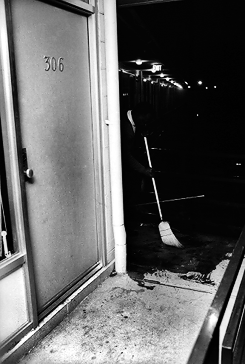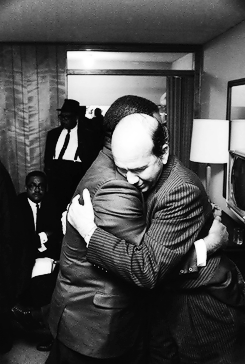






April 4, 1968: Martin Luther King, Jr. is assassinated.
The night before his assassination, King delivered his last speech at Mason Temple in Memphis, Tennessee; popularly known as “I’ve Been to the Mountain”, this speech was made in support of the Memphis Sanitation Workers Strike and called upon the United States to ”be true to what you said on paper”.
At around 6 PM, King was standing on the balcony outside his room at Memphis’ Lorraine Motel when he was struck by a single bullet through the cheek, fired from a pump-action rifle wielded by James Earl Ray, who shortly afterward fled north to Canada. After being taken to the hospital, King was pronounced dead five minutes after 7. All across the United States, violent riots in Baltimore, Chicago, Washington, D.C., and elsewhere broke out during the week following the assassination, though notably not in Indianapolis, where Robert F. Kennedy, who would be assassinated two months later, delivered arguably his speech informing the city’s residents of King’s death.
The funeral, which took place on April 9, was attended by 300,000 people, and a bill to establish a holiday in his honor was presented in Congress not long after. King’s family, and many others besides, maintain that James Earl Ray (a small-time criminal) was the scapegoat of a conspiracy involving the U.S. government and FBI. It is fact that the FBI’s COINTELPRO closely monitored King’s (and other “subversives’) activities intensely often through illegal or dubious means, such as wiretapping and break-ins. The agency also sent King an anonymous letter urging him to commit suicide. In 1999, King’s family won a civil suit in Memphis in which jurors reached the unanimous verdict that “Loyd Jowers [a restaurant owner in 1968] as well as ”others, including governmental agencies’” had been part of a conspiracy to murder King.